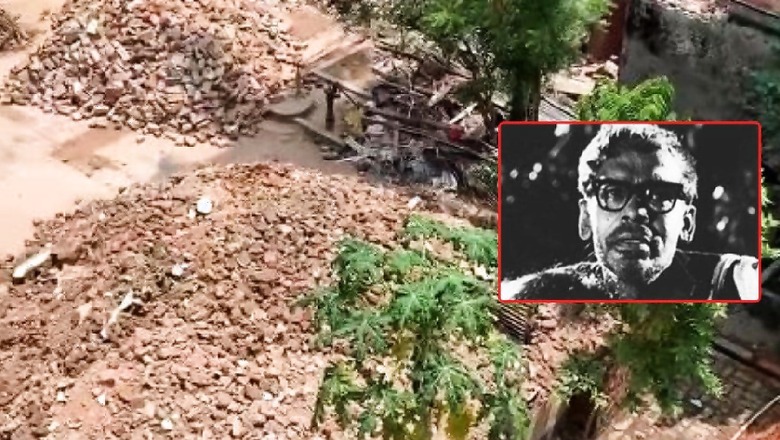
views
The ancestral home of Ritwik Ghatak, a critically-acclaimed, National Award winning filmmaker and Padma Shri recipient, was razed to the ground in Bangladesh’s Rajshahi.
A report by Prothom Alo said that his ancestral home in Rajshahi’s Mianpara was razed with a pile of bricks lying in the historic location.
The report said that Rajshahi Homoeopathic Medical College ordered the razing of the structure. It also pointed out that the cinema community of Rajshahi engaged in a war of words with Rajshahi Homoeopathic Medical College authorities when the demolition was going on.
Authorities have sought a week’s time to probe the matter.
“We will not accept it at all," filmmaker Mohammad Tawkir Islam Saik said, demanding a full-fledged probe.
The report citing the contractor said that college authorities ordered the razing but college authorities said that some former students began the process of razing the historic and cultural landmark last week.
Student protesters had gathered at the landmark on August 5 and August 6 demanding that posters and murals of founding father Sheikh Mujibur Rahman be pulled down and started demanding that the house be razed but left after removing the murals.
Anisur Rahman, the vice-chancellor of the Rajshahi Homoeopathic Medical College, said that students paid some labourers to raze the building and the process began last week.
“I came and found that students broke a part of the wall of the house on August 5. College authorities then instructed me to break it and remove it and then I called a few workers to raze the structure," contractor Shamim Mia said.
A 2017 report from the Times Of India says that part of the building was used by students of the college for educational purposes.
The Prothom Alo report said Rajshahi civil society and intellectuals have worked over the years to maintain the house and in 2020 the city administration took control of the landmark building.
The Bangladeshi newspaper also highlighted that another Padma Shri and Padma Vibhushan recipient, author Mahasweta Devi, who also won the Sahitya Akademi Award, Jnanpith Award and Ramon Magsaysay Award for her contribution to literature also lived for a short period of time in the home.
Devi is Ghatak’s niece and is known for her acclaimed literary works like Hajar Churashir Maa, Rudali and Aranyer Adhikar.
Rajshahi is a major city of Bangladesh and is a major urban administrative, commercial, cultural and educational centre and is roughly 247 kilometres from capital Dhaka.
Ghatak, who was originally born in Dhaka, was one of the key proponents of Rajshahi’s literary and theatre scene.
He lived in Rajshahi because his father was posted there as a district magistrate during the pre-partition period. He also studied at Rajshahi Collegiate School.
He received Padma Shri in 1970, was also awarded Bangladesh’s from Bangladesh Cine Journalist’s Association for Titash Ekti Nadir Naam. He also received the National Film Award’s Rajat Kamal Award for Best Story in 1974 for Jukti Takko Aar Gappo.




















Comments
0 comment